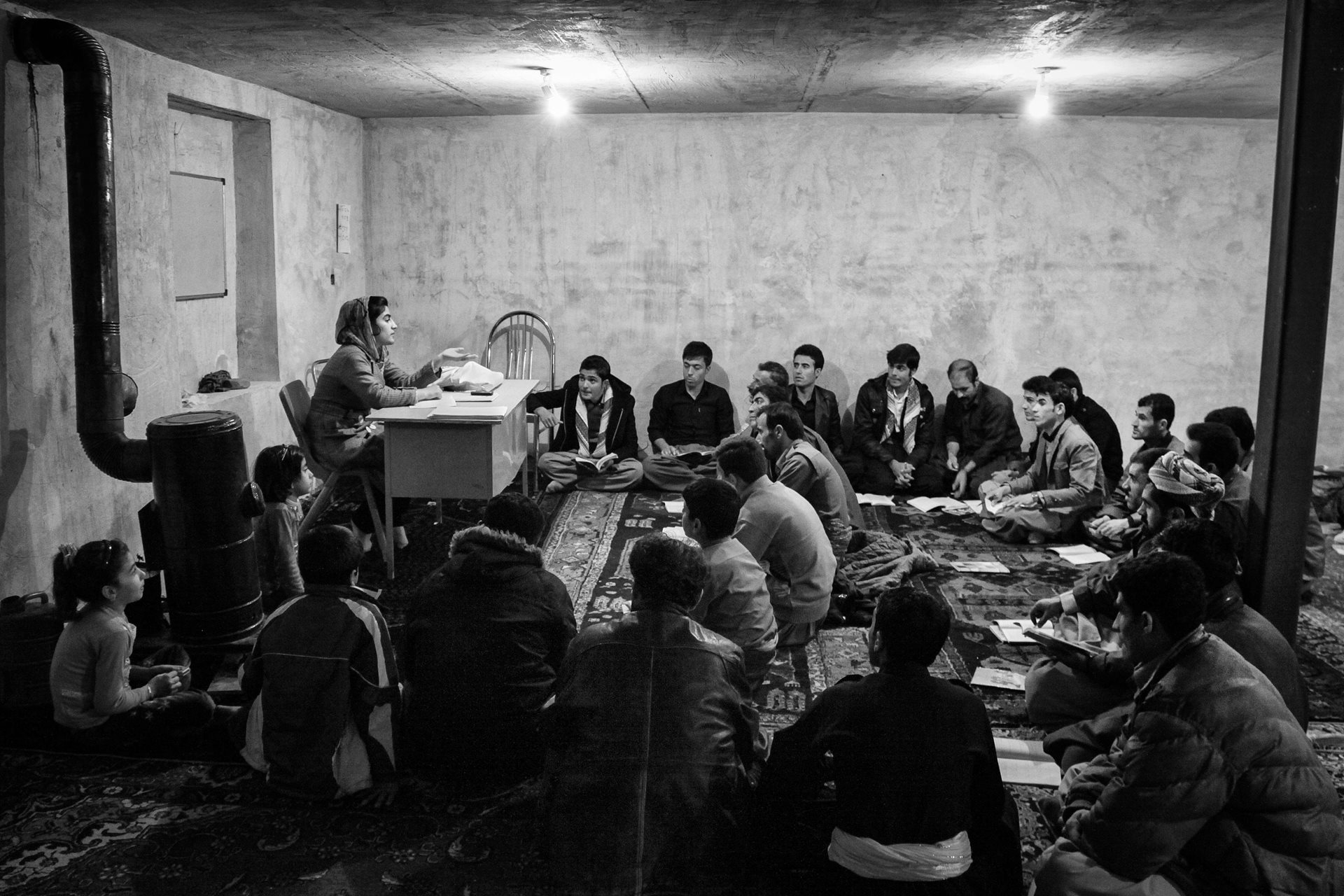Susan (18) teaches Kurdish in a remote border village, in Kurdistan, Iran. Teaching Kurdish in schools is banned, but volunteers help preserve the language by teaching people to read and write.
Kolbars (border couriers) carry goods such as household appliances, mobile phones, and clothes, on their backs through treacherous terrain from Iraq and Turkey into Iranian Kurdistan. They work in incredibly tough conditions, for very little money, and at risk to their lives – both from the elements and from authorities.
Many kolbars engage in legitimate cross-border trade, others in “grey-area” goods (such as those avoiding import duty), and a few in illegal products such as alcohol. The Iranian government bans or restricts the import of many consumer goods claiming this is to protect local production, become self-sustaining, and save foreign currency in the face of Western sanctions. Items deemed non-essential, as well as products that can be made locally, may not be imported, or may have high tariffs imposed on them. The bans and high tariffs make such goods unobtainable or unaffordable to the majority of people in Iran. Kolbari trade leads to such products becoming more accessible and affordable.
Kolbars’ packs can weigh around 50kg (sometimes four times that), and border crossings take an average of eight to 12 hours. Aged mostly from 12 to 65, they may earn as little as US$10 to US$13 a journey, for extremely dangerous work. Kolbars usually leave late at night, so as to make a border crossing in the early hours of the morning. They face extreme cold, avalanches, and bad weather, and many have died falling from cliffs. Mines left over from the Iran-Iraq war pose a further hazard, and kolbars risk being shot by security forces and border patrols. The Kurdistan Press Agency reports that at least 2,463 kolbars from the Iranian Kurdish regions of Kurdistan, Kermanshah, and Western Azerbaijan were killed or injured between 2011 and 2024.
Decades-long marginalization of Kurds in Iran – ethnically, culturally, and economically – has impacted Kurdish people’s access to basic services such as housing and education, and means widespread unemployment in the region, driving many to kolbari. In addition, many kolbars see the activity as legitimate – since the early 20th century, Kurdistan has been divided between Iran, Iraq, Turkey, and Syria, and people feel ties with fellow Kurds across nation-state borders they do not acknowledge.
Are you a photographer and/or passionate about press freedom? Sign up for our newsletter to stay updated on our annual contest and to hear about exhibitions near you.

